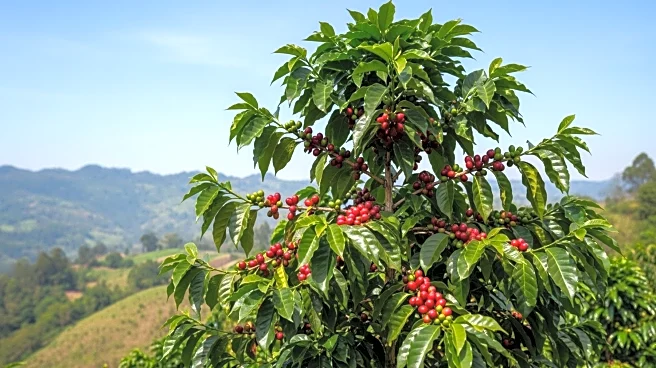What's Happening?
The Rainforest Alliance has announced a new Regenerative Agriculture Certification for coffee, aimed at promoting sustainable farming practices. This certification focuses on five key areas: soil health,
biodiversity, climate resilience, water stewardship, and livelihood. The initiative seeks to improve the income of coffee farmers while enhancing environmental sustainability. The certification is being implemented in coffee farms across Costa Rica, Brazil, Mexico, and Nicaragua, with plans to expand to other crops in the future.
Why It's Important?
The introduction of this certification is crucial as it addresses the dual challenges of climate change and economic sustainability in the coffee industry. By adopting regenerative agriculture practices, farmers can increase their resilience to environmental changes and access new markets. This initiative aligns with growing consumer demand for environmentally responsible products and could set a precedent for other agricultural sectors. The certification also supports global efforts to combat climate change by promoting practices that restore and enhance ecosystems.
What's Next?
The certification is set to begin in 2026, with independent auditors reviewing compliance. As the program expands, it may include other crops such as cocoa, tea, and citrus. The success of this initiative could influence broader agricultural policies and encourage more industries to adopt regenerative practices. Stakeholders will be watching closely to assess the certification's impact on both the environment and the livelihoods of farmers.










